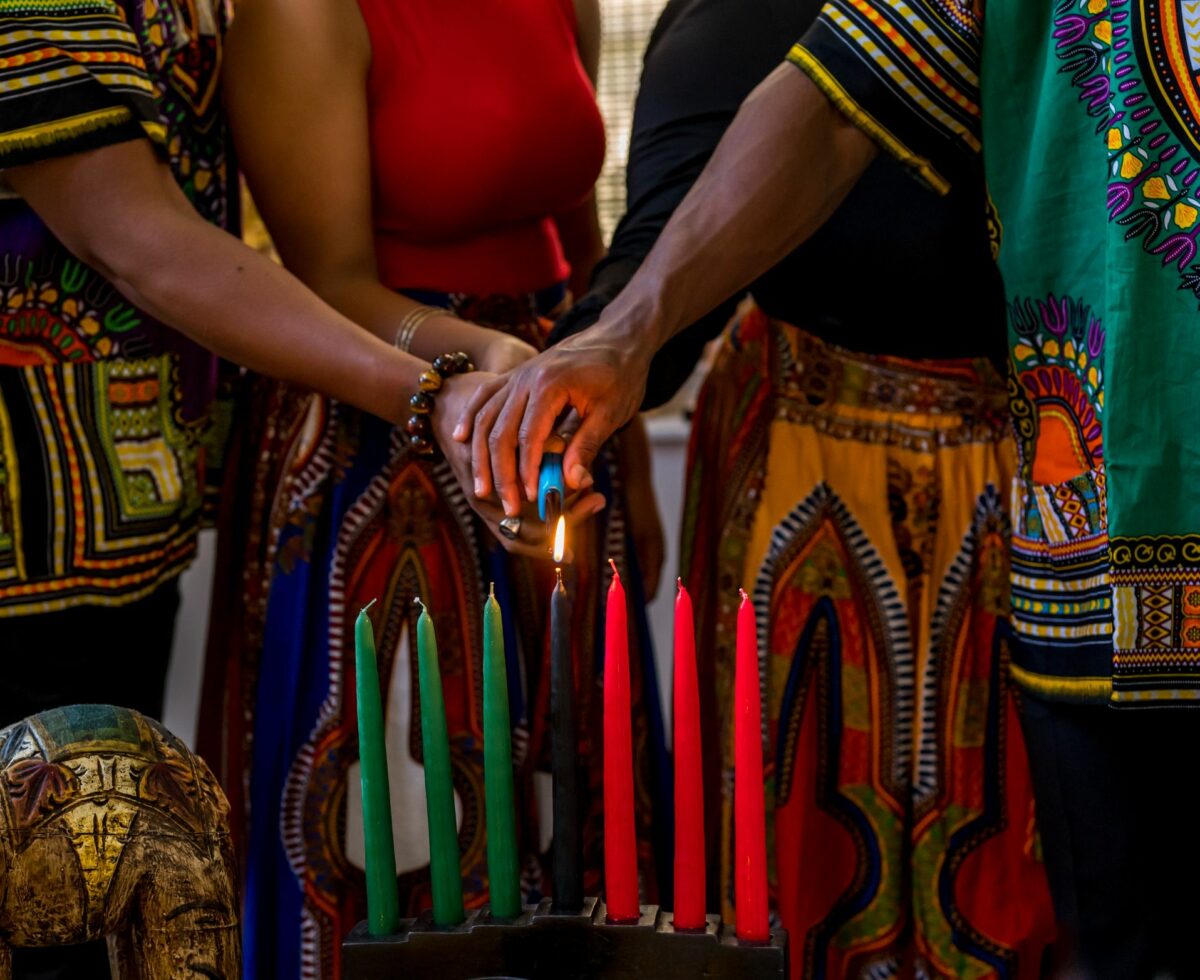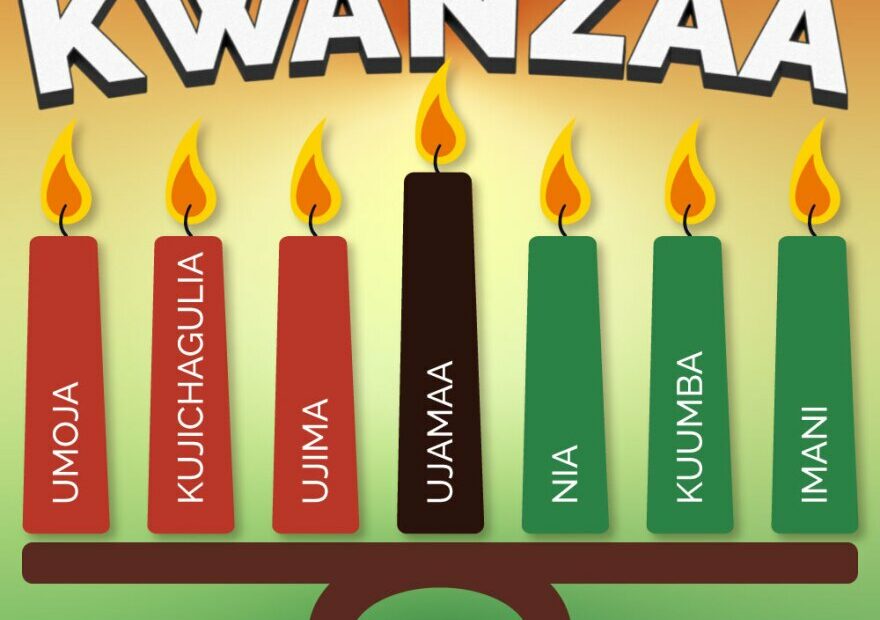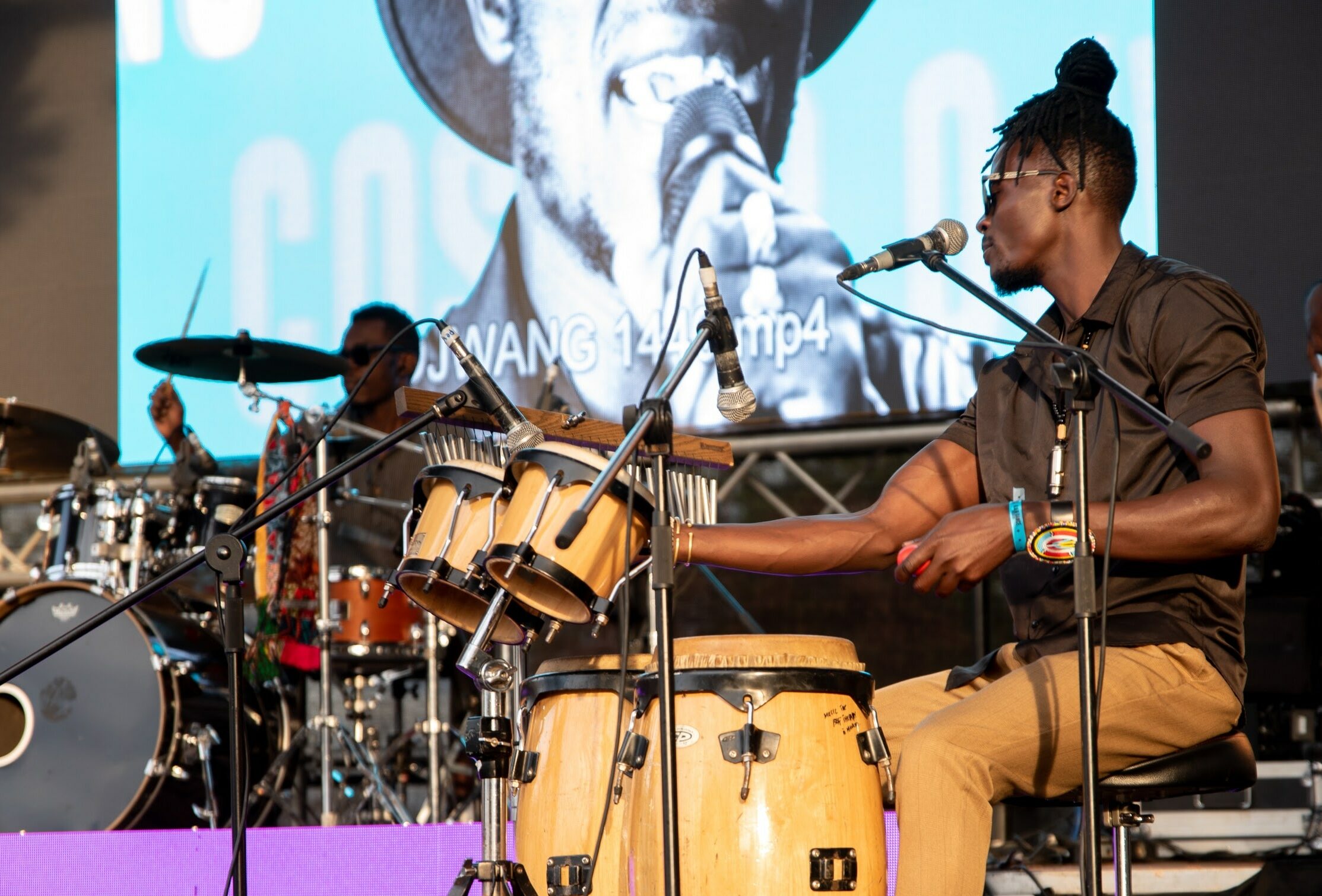Do you know much about Kwanzaa? While Christmas is well-known worldwide, there’s another celebration in December called Kwanzaa. Even though Christmas is bigger, Kwanzaa keeps getting more popular. As people get ready for Christmas globally, the African community is also getting set for Kwanzaa. These holidays have similarities but also some big differences. Christmas is about religion and lasts 12 days, while Kwanzaa is a seven-day celebration of African culture and history. So, what’s Kwanzaa all about, and how is it different from Christmas? Over the past decade, Kwanzaa, the African cultural celebration, has gained more visibility in public life. Local newspapers now regularly cover Kwanzaa events, and television channels include Kwanzaa alongside Christmas and Hanukkah in their holiday greetings. So what are the Kwanzaa vs. Christmas Differences?
What is Kwanzaa?
Kwanzaa was created for African Heritage. Dr. Maulana Karenga initiated Kwanzaa in 1966 to fill a cultural void among Black Americans, severed from their African roots due to the slave trade’s impact. This celebration aims to reconnect them with their heritage, though primarily observed in the United States.
Kwanzaa Meaning and Traditions

“Kwanzaa” translates to “first fruits” in Swahili, signifying both a harvest festival and a celebration of African culture. It upholds the dignity of community, family, environment, and cultural richness.
One wonders whether Kwanzaa is Cultural or Religious. Held from December 26 to January 1, Kwanzaa’s timing can clash with Christmas, raising concerns, especially among Christians. Although proponents claim its cultural nature is compatible with any religion, some traditions hold spiritual connotations.
Virtues of Kwanzaa
Kwanzaa has seven Principles centred on seven virtues rooted in traditional African philosophies. They include:
- Unity (Umoja)
- Self-determination (Kujichagulia)
- Collective responsibility (Ujima)
- Cooperative economics (Ujamaa)
- Purpose (nia)
- Creativity (kuumba)
- Faith (Imani)
These principles, akin to aspects of Christianity, reflect universal values.
Kwanzaa vs. Christmas: Kwanzaa vs. Christmas Differences
1. Principles vs. Person
Kwanzaa emphasizes principles, while Christmas presents a person—Jesus Christ, the incarnate Son of God. Though sharing virtues, Kwanzaa focuses on principles, while Christmas offers the personhood of Christ for the ultimate fulfilment and perfection of these virtues.
When we think about Christmas, images of Santa Claus, decorations like tinsel, holly, ivy, Christmas trees, festive feasts, Church visits, and exchanging presents often flood our thoughts. Yet, fundamentally, Christmas commemorates the birth of Jesus Christ, as seen in the nativity scene and the global tradition of offering gifts to the newborn.
Over time, Christmas has embraced diverse customs. The Yule log, originating from Scandinavia, and connections to the winter solstice are part of its evolution. Interestingly, Santa Claus, renowned for gift-giving, originally stemmed from a Dutch saint known for aiding the less fortunate.
Kwanzaa holds deeper spiritual and cultural roots. Its purpose is to prompt African Americans to embrace their cultural legacy, placing less emphasis on gift-giving and more on commemorating the seven principles across its seven-day span. Each day focuses on a principle, marked by the lighting of a dedicated candle.
Kwanzaa vs. Christmas Differences
| Aspect | Christmas | Kwanzaa |
| Reason for Festival | Religious, celebrating Jesus’ birth | Cultural/spiritual, celebrating African heritage |
| Exchanging of Gifts | Emphasis on gift-giving, symbolic of offerings to newborn Jesus | Limited emphasis on gifts, encouraged to be homemade, culturally relevant, or educational to avoid commercialization |
| Days Celebrated | Typically one day (December 25th) | Seven days (December 26th – January 1st) |
| Observance | Church visits, family gatherings, socializing, decorating homes, feasting | Candle lighting for unity, ceremonies, discussions on principles, feast (karamu), singing, dancing, storytelling |
| Decorations | Trees, snow-themed decor, ornaments, mistletoe | Decorative mat with symbols, posters of principles, flag with red, green, and black colors |
It’s important to understand that Kwanzaa doesn’t substitute for Christmas. Many individuals of African heritage celebrate both holidays. Additionally, numerous people outside of African descent partake in both festivities.
Despite their distinctions, these holidays share common ground. They unite people, foster harmony, encourage sharing, and embody joy and happiness. Both celebrate community and unity, although one is rooted in religion while the other is rooted in cultural heritage.



